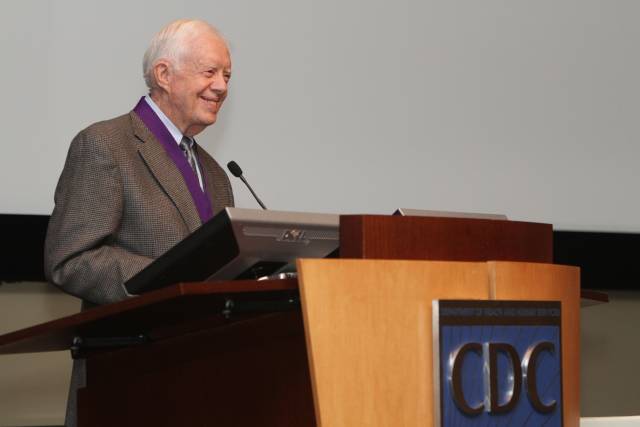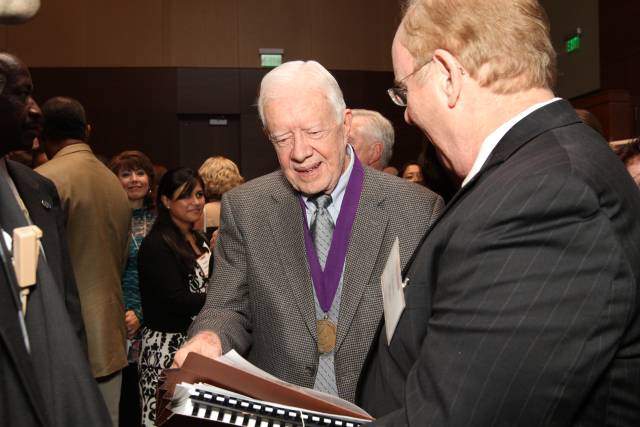You are here
We All Have Something to Contribute: Reflecting on the Inspiring Life and Legacy of President Jimmy Carter
Along with other Americans, I am reflecting on the life, career and legacy of President Jimmy Carter, who incredibly rose from a small Georgia farming community to become leader of the free world. While many may look at his time in the White House, or even in Georgia politics, today I am thinking about his remarkable life after the presidency and the impact he made on America and the world.
In 1982, along with his wife Rosalynn, President Carter established The Carter Center to advance human rights and alleviate human suffering, including helping improve the quality of life for people in more than 80 countries. Since its founding, the Carter Center has achieved great impact on many fronts, from election monitoring, to supporting locally led state-building and democratic institution-building in various countries, to mediating conflicts between warring states, and intervening with heads of state on behalf of victims of human rights abuses.
As a physician and former state public health officer, the Carter’s public health work is closest to my heart. After the eradication of smallpox was certified in 1980, the Centers for Disease Control and Prevention (CDC) suggested eradication of Guinea worm disease—transmitted only through contaminated drinking water—was achievable. In 1986, The Carter Center became the lead organization in the international effort to eradicate the disease, and since then the disease has been reduced by more than 99.99 percent.
President Carter rallied support to eradicate Guinea worm disease country-by-country, inspiring top political leaders and village elders. Prevention efforts, made possible largely through international public-private partnerships, focused on education and improving access to safe drinking water.
The Carters have also worked to eliminate other neglected tropical diseases, such as river blindness, lymphatic filariasis and trachoma. And, they have helped our society make progress against the stigma focused on people facing challenges with mental illness and substance use.
For his work seeking peace and creating a healthier and more just world, President Carter received the Nobel Peace Prize “to find peaceful solutions to international conflicts, to advance democracy and human rights, and to promote economic and social development” in 2002.
In 2012, while I was serving as a leader at CDC, the CDC Foundation honored President Carter with its Hero Award recognizing three decades of visionary leadership focused on building international public-private partnerships to save lives, reduce suffering and provide hope for millions of the world’s poorest people.
Being in the second half of my career at that time, I came away from the ceremony inspired, realizing I could strive to improve the public’s health for many years to come—really throughout the rest of my life.
And, perhaps that’s a central lesson all of us can take from President Carter as well as the First Lady. After their service in the White House, the Carters could have done just about anything with the remainder of their lives, which included more than 40 remarkable years. They chose to make a difference by seeking justice and health for everyone—and we all are better for it.
Today, we celebrate the life of President Carter, particularly for teaching us we all have something to contribute at each and every stage of our lives.
Let’s build on his legacy and make the world a better place.


